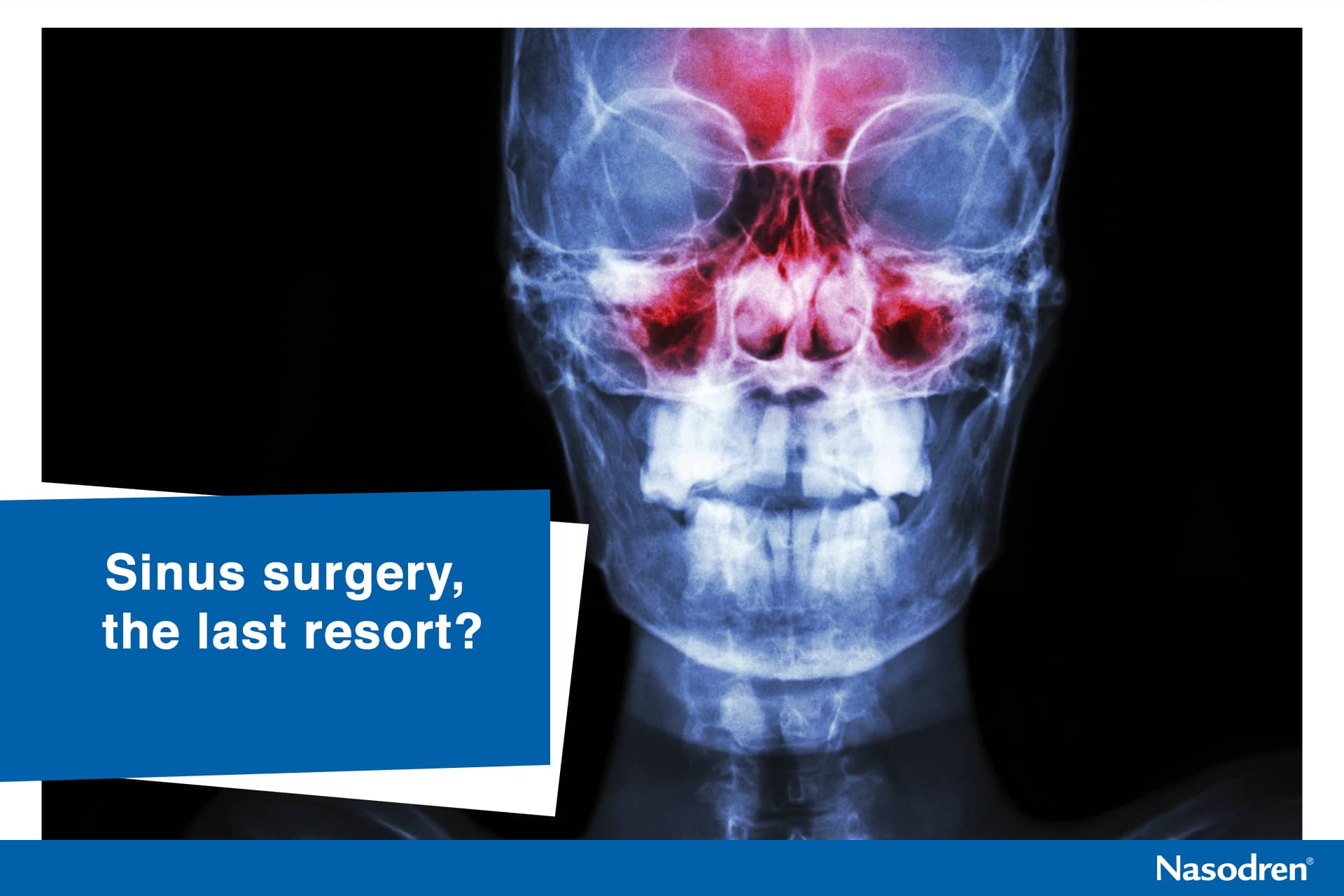The need to provide a good treatment for sinusitis symptoms has been widely discussed in previous posts. Regardless of the cause, sinusitis symptoms are due to the accumulation of thick mucus inside the sinuses, so draining such secretions should be the main treatment goal.
Those suffering from chronic sinusitis have a poor quality of life and have tried a wide range of products with unsatisfactory outcomes. In certain cases, though, surgery is clearly the best procedure to eliminate the root causes of chronic sinusitis.
That said, sinonasal surgery should be indicated under these circumstances:
Polyps inside the nose or the sinuses
Polyps are generally soft, noncancerous growths that usually cause no symptoms, but can prevent the correct drainage of the mucus from the sinuses and, therefore, lead to recurrent sinus infections. When polyps alter the correct functioning of the nasal and paranasal activity, they should be removed via endoscopy. Unfortunately, polyps grow again within 3 years post-surgery in about 55% of cases.
Anatomical factors
Some anatomical factors of the nose end up requiring surgery to improve the patient’s quality of life. For instance, such is the case of people with deviated nasal septum (when the bone and cartilage of the nose are crooked), which is highly associated with problems such as sleep apnea, loss of smell, breathing problems, nasal obstruction, facial pain and even nosebleeds. To have it fixed, surgeons normally perform a septoplasty, an incision in the septum aimed to remove the excess bone and cartilage that block the nostril/s.
Uncommon acute sinusitis complications
Acute rhinosinusitis (ARS) can bring about further complications such as abscesses, meningitis and encephalitis. In the pre-antibiotic era, these conditions were deemed to entail dangerous clinical events; today, and thanks to more reliable diagnostic methods, improved surgical techniques and a wide range of available antibiotics, their impact and mortality incidence have dramatically decreased.
A blocking foreign object
Basically, this goes for all children, who can end up having a foreign object trapped in the nasal cavity, therefore suffering from obstruction in the nasal or sinus passage. A surgical intervention may be the only option to have the object removed.
These situations aside, bear in mind that sinus surgery is, indeed, the last resort when considering ways to treat nasal blockage (basically, when all the alternatives fail). However, having a surgical intervention is no guarantee of success, even if it helps to enlarge the openings that drain the sinuses. Some patients end up needing a second operation to have their problems fixed and, yet, they have to follow a preventive treatment for conditions like sinusitis.
However, having a surgical intervention is no guarantee of success, even if it enlarges the openings that drain the sinuses. Some patients need a second operation to have their problems fixed and, yet, they have to follow a preventive treatment for conditions like sinusitis.
Besides, beyond these and few other indications, surgery should be avoided especially when using natural products that allow for smooth drainage and clearance of the sinuses.
Have you ever undergone sinus surgery? If so, what was your experience like? Did it help solve your problems?






